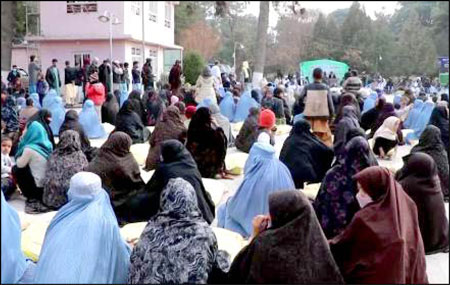Economists said considering the increase of unemployment in the country, in the coming winter many will face food shortages, especially those in rural areas.
The World Food Program (WFP) said that the organization is planning to provide stores totalling 150 thousand tons of food aid in remote provinces of Afghanistan.
Waheedullah Amani, spokesman of the WFP in Afghanistan, said that more than 170 million dollars are needed to achieve this goal, and the international community should help the WFP in this regard.
“To store this amount food in distant provinces, we need $172 million, so we ask the international community to provide us with more financial aid as soon as possible, so that we can stock up in winter and before the roads are closed,” he told TOLOnews.
Meanwhile, the Ministry of Economy said that in the last six months domestic and foreign organizations have provided food aid for around 6.5 million people in Afghanistan.
“In total, 88 non-governmental institutions are active in Afghanistan, 65 of which are domestic and the rest are foreign, and they are active in the food distribution sector. From 88 institutions, 53 of them are related to the World Food Program, said Abdurahman Habib, a spokesman of the Ministry of Economy.
But some economists criticized the process of distributing aid.
“This assistance does not have the right methods of distribution, if we were to distribute them based on good strategies, I think we would have reached the goal,” said Sayed Masoud, economist.
Economists said considering the increase of unemployment in the country, in the coming winter many will face food shortages, especially those in rural areas.—Tolo News










